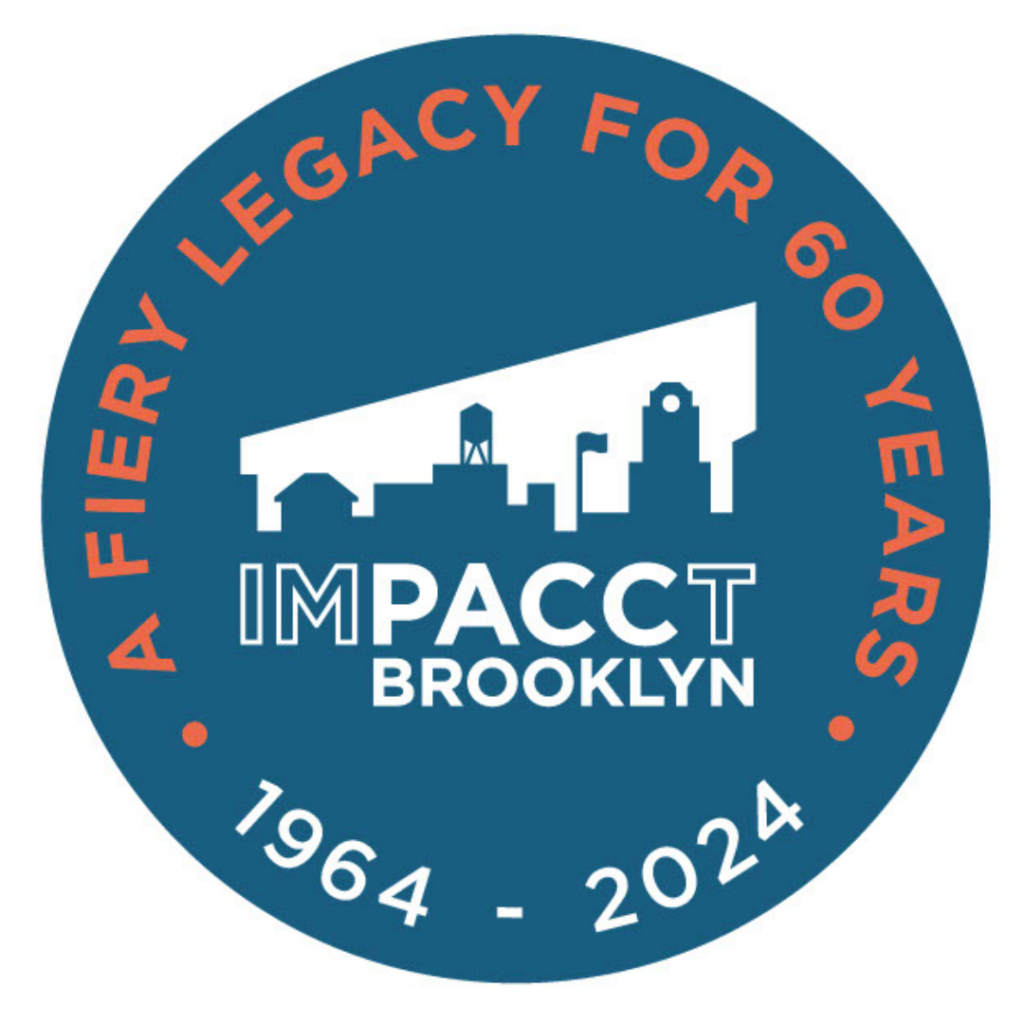
As February comes to a close, so does Black History Month.
Throughout the month of February, so much history and celebration is crammed into these twenty eight days. However, as the COVID-19 pandemic and the death of George Floyd have placed a spotlight on the racial inequities that exist in our country, it is important that all of us continue to share history and discuss repairing and reconciling the ills that have existed way too long across America, in New York, in Brooklyn, and in our communities. Going forward, IMPACCT Brooklyn will feature links, narratives, and pieces intended to inform the community at large about race matters and history, with hopes of building flourishing communities and fostering civic engagement as we work together toward a vision of an equitable society.
In contributing to Black History Month, IMPACCT Brooklyn thanks the community organizers, advocates and allies that worked to assure laws were changed and regulations made to help BIPOC and low-moderate income families gain access to financial resources. Several brave souls from across the nation organized and successfully created change at a federal level. One important that these organizers helped to recreate is the Community Reinvestment Act (CRA). The CRA was created in 1977 to address redlining and resulted in banks having to invest, make loans and provide services in marginalized neighborhoods. The CRA followed similar laws passed to reduce discrimination in the credit and housing markets, including the Fair Housing Act of 1968, the Equal Credit Opportunity Act of 1974, and the Home Mortgage Disclosure Act of 1975 (HMDA). The Fair Housing Act and the Equal Credit Opportunity Act prohibit discrimination on the basis of race, sex, or other personal characteristics. The Home Mortgage Disclosure Act requires that financial institutions publicly disclose mortgage lending and application data. In contrast with those acts, the CRA seeks to ensure the provision of credit to all parts of a community, regardless of the relative wealth or poverty of a neighborhood. The CRA is silent on race but nevertheless was born out of the outcry of discrimination that existed against Black property owners as who were unable to obtain financing.
The CRA regulation continues to exist today and is undergoing a modernization. It is important for us to know our history and also to be civically engaged, knowing about the laws and regulations that make a difference. While we celebrate the legacy and learn the history of those that worked so hard to put systems in place, let’s make sure we continue to be aware and assure these rules are strengthened and enforced, as we know and have witnessed all too well that history repeats itself. Through the work of fair housing, Black History Month lives on EVERY month.
For more information on the CRA see:
- Responsible Banking | Association for Neighborhood and Housing Development (anhd.org)
- Treasure CRA » NCRC
- Federal Reserve Board – Community Reinvestment Act (CRA)
-Bernell Grier, Executive Director of IMPACCT Brooklyn



